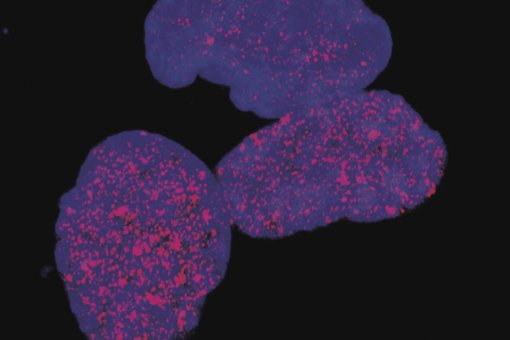Images
Contact

Researchers at IBEC, IRB Barcelona and the UB identify the strategy used by enterobacteria to acquire resistance and pathogenicity.
The increase in the number of infections caused by multi-resistant bacteria is a growing public health concern, above all in hospital settings, where infections of this kind may have serious consequences. Researchers at the "Institut de Bioingenieria de Catalunya" (IBEC), the Institute for Research in Biomedicine (IRB Barcelona) and the University of Barcelona (UB) have discovered the strategy adopted by enterobacteria to facilitate the incorporation and regulation of genes that confer resistance and virulence. Published recently in PLoS Genetics, the study opens up the way to the development of new drugs that will allow treatment of the infections caused by multi-resistant variants of pathogens such as Escherichia coli, Salmonella and Shigella.
Bacteria that belong to Enterobacteriaceae cause intestinal infections such as dysentery and typhus, and extra-intestinal ones such as urinary infections, meningitis and septicemia. Many of the genes associated with bacterial pathogenicity are acquired by horizontal transfer (HGT), which implies that they can be transferred from one bacterial cell to another, and even from an individual of a distinct species, within the same generation. "It is like your neighbour passing you genes that are favourable under given circumstances" explains Miquel Pons, researcher at IRB Barcelona and professor of the UB. The acquisition of DNA through horizontal transfer can involve the incorporation of new properties and therefore the capacity to adapt to new environments. Among these properties, special emphasis is placed on resistance to antibiotics and other antimicrobial substances, and on virulence factors, that is to say, the genes that allow bacteria to cause infectious diseases.
"Although we are aware to the relevance of HGT in the variability of bacterial genomes, little is known about the mechanisms that allow the new fragments of DNA acquired to be beneficial for the cell receptor" explains the coordinator of the study, Antonio Juárez, researcher at IBEC and professor of microbiology at the UB. This new study demonstrates that Enterobacteriaceae have developed a mechanism to facilitate the acquisition of DNA by HGT. This mechanism involves the production of two proteins, H-NS and Hha, which react together and also with bacterial DNA, and facilitate the integration of the new genetic material into the receptor cell and specifically regulate this information. The researchers propose interfering with the expression of virulence factors and antibiotic resistance, functions that are often determined in this type of genetic material, by altering these two proteins. Juárez concludes that “this study opens up a new approach to combat bacteria that is not based on destroying them but on attacking and deactivating the very mechanism that makes them harmful”.
Reference article:
Differential Regulation of Horizontally Acquired and Core Genome Genes by the Bacterial Modulator H-NS
Rosa C. Baños, Aitziber Vivero, Sonia Aznar, Jesús García, Miquel Pons, Cristina Madrid, Antonio Juárez.
PLoS Genetics (June 2009), Vol 5, Issue 6, e1000513
http://www.plosgenetics.org/doi/pgen.1000513
About IRB Barcelona
The Institute for Research in Biomedicine (IRB Barcelona) pursues a society free of disease. To this end, it conducts multidisciplinary research of excellence to cure cancer and other diseases linked to ageing. It establishes technology transfer agreements with the pharmaceutical industry and major hospitals to bring research results closer to society, and organises a range of science outreach activities to engage the public in an open dialogue. IRB Barcelona is an international centre that hosts 400 researchers and more than 30 nationalities. Recognised as a Severo Ochoa Centre of Excellence since 2011, IRB Barcelona is a CERCA centre and member of the Barcelona Institute of Science and Technology (BIST).






